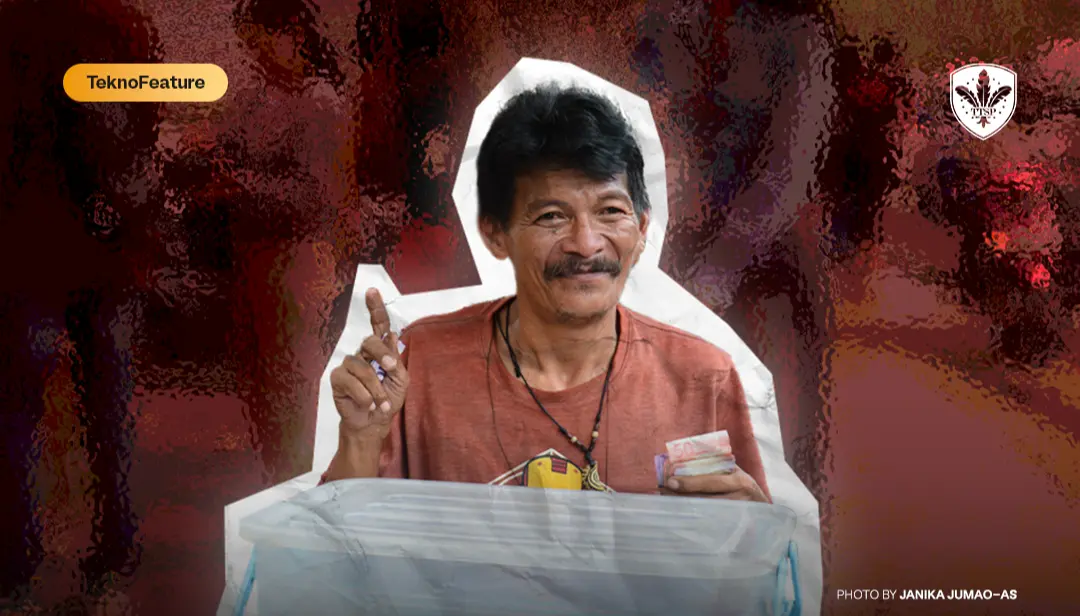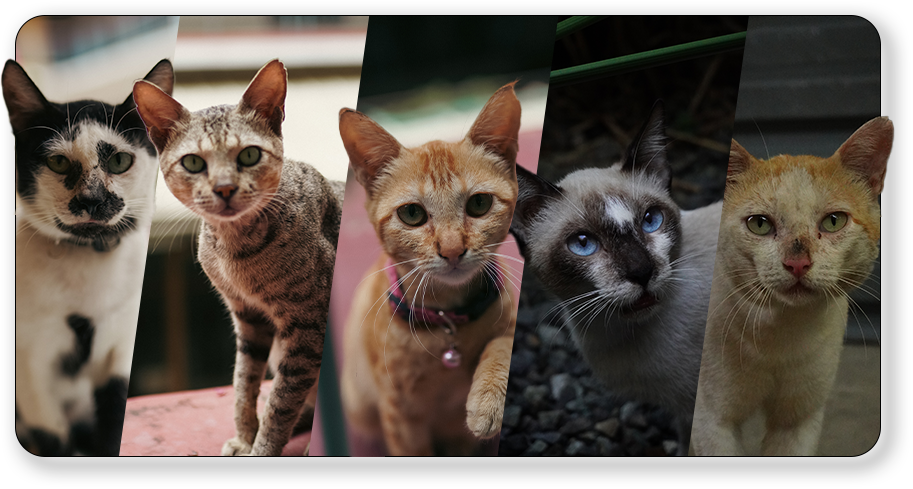By John Urvie Papelleras
Each pedestrian walks a different path, even on the same street. For some, the streets are just someplace to pass by, a mere passage towards a bigger destination. For others, a spot for a quick purchase along stores with vandalized facades. For many, a route on the way to school or work, then back home.
For Tatay Carlos, the streets are where his life revolves. Each turn a deciding factor of how much he earns for the day. The beeps of the bus an announcement to start his daily hustle, the streetlights a signal for when the trade is over.
Carlos Malinao, or “Tatay Empanada” as many call him, recently captured the hearts of netizens when a video of him selling empanadas in an e-jeepney circulated online. Many were amused by his cheer, sparking positive vibes among viewers.
Tatay Carlos usually vends outside Cebu Institute of Technology – University (CIT–U). His usual schedule is during class days at noon or late afternoon, when students begin to pour out of the campus. When he is not there, he waits by in Colon where people rarely thin out. With his translucent tupperware and contagious smile, he is a sight among the crowd.
Counting Back the Years
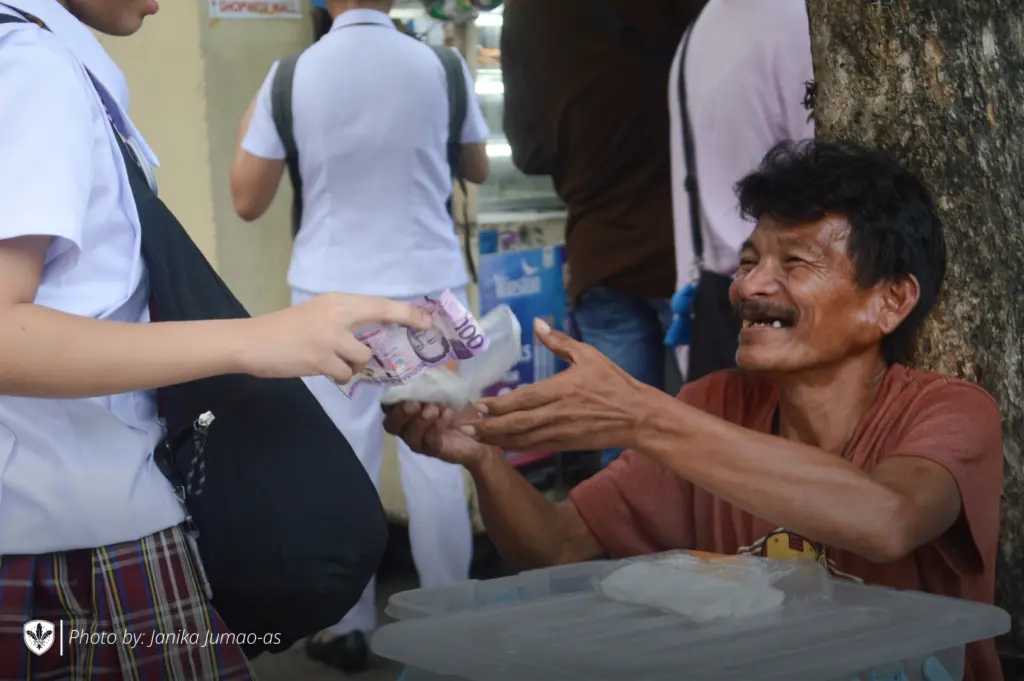
In an interview with the Technologian, Tatay Carlos shared how selling empanada has been his source of income for 23 years, peddling along streets around the city since he was younger.
“Nakasugod ko niini mga 2002. Sobra na baynte ka tuig. Suroy pa akoa permiro sulod sa mga internetan. Bata pa man ko ato, dugay sad kaayo ko dukaon, sige ko’g laag-laag,” he said with a wide smile.
[I started this in 2002. It’s more than 20 years now. At first, I peddled inside internet cafes. I was young then, it took a while before I got sleepy, I wandered a lot.]
With no educational background, he shares this is what answers his daily living—a labor he considers a blessing from God. But without basic education, how did Tatay Carlos learn to count? He learned it at nine years old, when he became a sacristan in a church in Talisay which gave him shelter. As a sacristan, he was tasked to count coins and bills from donations, which pushed him to learn basic arithmetic. For seven years, this was his life growing up.
“Wala ko kasulod ug skwelahan bisan Grade 1. Wa jud ko kahibaw unsaon na pag-ihap pero sukad atong nagpuyo ko’g pari nya nasud ko’g sakristan, didto rako nakat-on ug pangwenta ug mga sintabos ug papel. Murag akong utok, sama na’g niskwela. Didto rako nakakat-on,” he shared.
[I was not able to attend school, even Grade 1. I really didn’t know how to count but since I lived with a priest and became a sacristan, I learned how to count centavos and bills. It’s just like I’m attending school. I learned it there.]
Facing the Crossroads of Survival
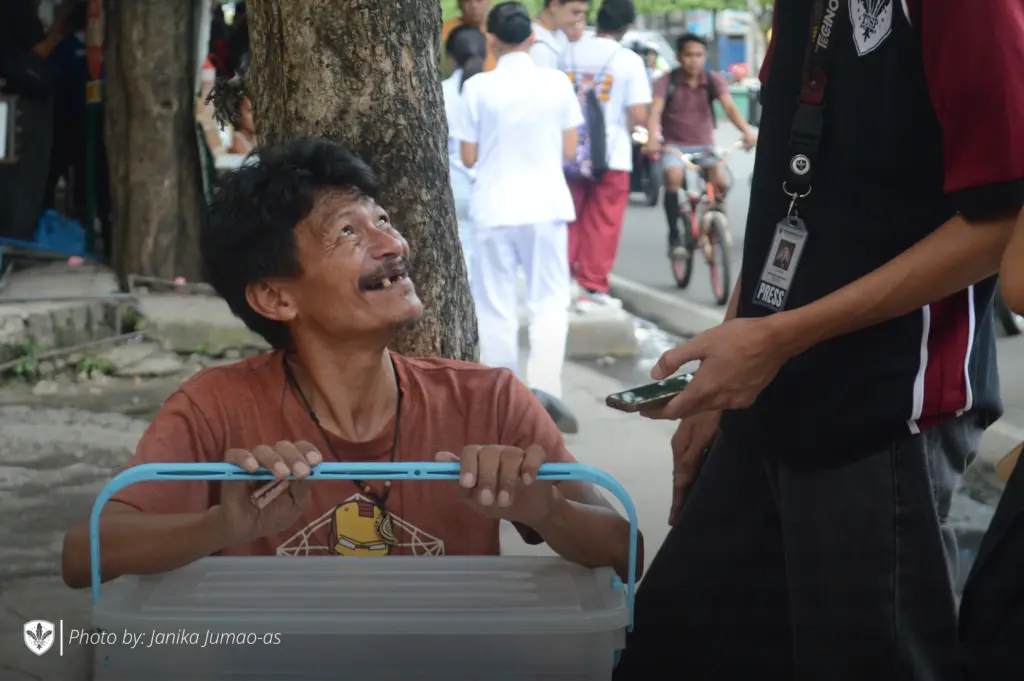
Born to a humble family, Tatay Carlos is the second of six siblings. However, when their eldest died, he stepped up into the role of being the reliable brother.
“Unom mi kabuok. Upat nalang kay namatay ang duha. Ako nay nahimong kinamaguwangan, kay namatay man ang kinamaguwangan,” he said.
[There were six of us. We’re only four now because the other two died. I came to stand as the eldest because our eldest died.]
Finding a way to get through each day, Tatay Carlos began selling empanadas which he sources from a family he has known to produce one. Having worked for them for years, he said he has become part of their family and now comes home to them in N. Escario.
“Taga Medellin ko gikan, didto gyud ko natawo. Karon, naa kos Escario. Nahulog na kog gisagop sa tag-iya ani (empanada) kay dugay naman kos ilang kamot,” he said.
[I’m from Medellin, I was born there. Now, I’m in Escario. It’s like I have been taken in by the owner of this (empanada) because I have been in their hands for quite some time.]
When videos of him peddling went viral in social media, Tatay Carlos shared that a few help has reached him since then. This includes a student from CIT–U, who has helped him get the cyst by his right ear checked in the hospital. While the cyst had not completely healed, he said it is now much smaller than before.
Braving Realities with Faith
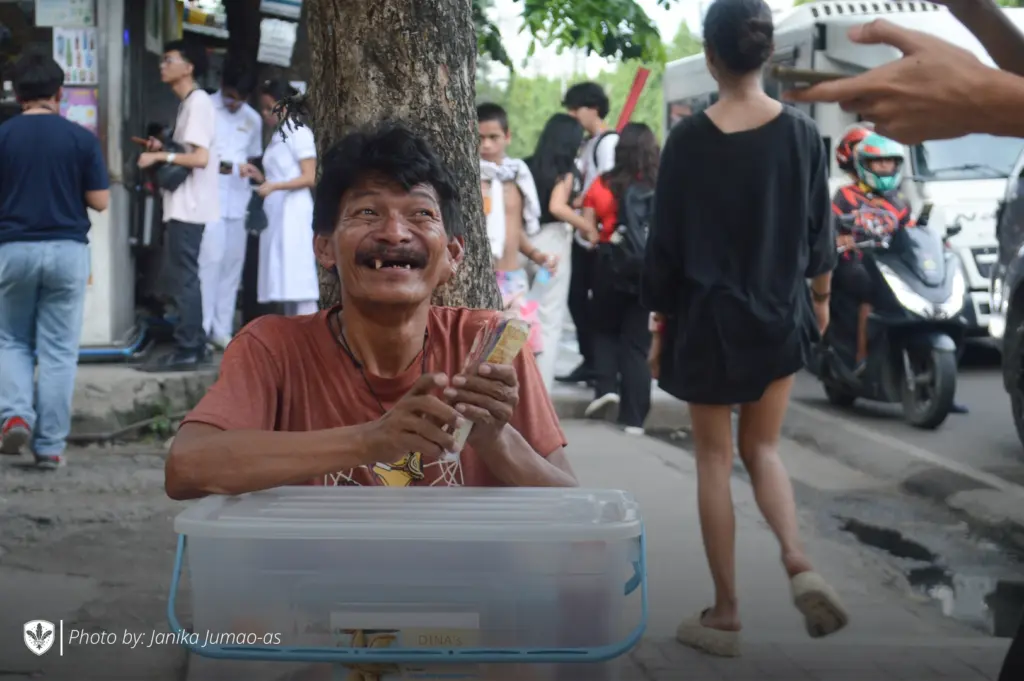
Despite his hardships, how does Tatay Carlos manage to find happiness in the streets? “Ania sa akong kasing-kasing ang Ginoo,” he answered briefly.
[God is in my heart.]
For him, though he has not built a family of his own, he has found family in God’s presence. In his solitude, Tatay Carlos often ponders about his faith and of growing old, which he expresses through a song, like the one he sang to us:
“Nausab ang panahon
Dako’g kalainan
Mga buhat ning kalibutan
Di kita katag-an
Kung masakit ako
Padulong ta sa katiguwangan
Magkaumento ang edad
Dali lang mutapos
Ang tuig sa atong kinabuhi
Magkaluya ang lawas
Mawad-an ug kusog
Maggabok atong gusok
Unsa jud ang kinabuhi?”
In his daily vending, Tatay Carlos walks side-by-side with the harsh realities of life. He said he has bore witness to how the wealthy and corrupt have exploited the ordinary people.
“Mga dato diris kalibutan, lumba la’g pasikat sa ilang mga building pero dinhi [sa kasing-kasing], wa pasikati. Daghan kaayong nasilaw sa bulawan tungod sa korapsyon sa atong kalibutan. Daghang mga abusado,” he said.
[The wealthy people in this world race for glory with their buildings, but in their hearts, there’s no glory. Many have been blinded by gold because of the corruption in our world. Many have become abusive.]
From N. Escario to Colon to N. Bacalso, Tatay Carlos walks on both feet with a box of empanada and a will to persist. With a sincere smile that refuses to yield despite the weight on his shoulders, he gently puts the empanada in a plastic and hands it with tenderness. He then opens his palm for the 20-peso coin—a portion of it will be his—and places it in his bag. For a while, depending on his luck, he patiently waits for another customer, glad to do it all over again, like he has been doing for over two decades.
In a country like ours, the streets are not merely a place to pass by. The concrete has become home for the empty-handed, with the cold night air the only blanket within reach. We cross the same roads—and while others impatiently wait for the green light above, some bow their heads to the ground, praying that when they reach the other side, it all somehow gets a little better. While many people race through the streets for glory, for some, like Tatay Carlos, the streets are their only lifeline.

